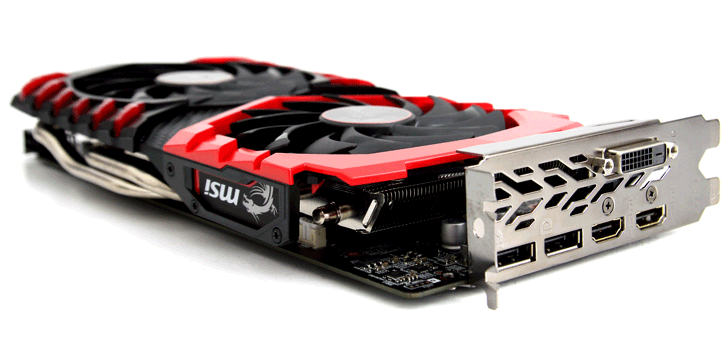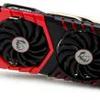Introduction
MSI Radeon RX 470 Gaming X (8GB) review
Incredibly cool and quiet 1080P gaming on a budget
We review the MSI Radeon RX 470 Gaming X, and this round it is fitted with 8 GB of graphics memory. The Radeon RX 470 with 4 GB and 8 GB graphics memory is bound to impress for the money. Join us in this article where we'll tell you all about its performance and features. This mainstream graphics card series will allow you to play your games in both the Full HD 1080P range and perhaps a game or two as well in the WQHD (2560x1440) range for a price of under 200 USD and all that at a very reasonable price as well. See, the 4 GB variant will start selling at $179 / 200 EURO. At the Full HD domain, 4 GB we feel is plenty of graphics memory. These cards come with 2048 shader processors and are clocked at a dynamic boost frequency of up-to 1206 MHz on the reference cards.
In this review we'll look at temperatures, noise, performance and go with the latest game titles on the globe. This review is all about Polaris 10, a code-name indicative of the mainstream to high-end products (but not enthusiast):
- Vega 10 - AMD Radeon RX 490 8 GB (enthusiast class performance)
- Polaris 10 - AMD Radeon RX 480 4 GB and 8 GB (high-end performance)
- Polaris 10 - AMD Radeon RX 470 4 GB and 8 GB (mainstream performance)
- Polaris 11 - AMD Radeon RX 460 2 GB/4 GB (entry level)
The Radeon RX 470 graphics card will be made available in 4 and 8 GB versions, the 4 GB version will be the predominant standard though as it will be the most price effective solution. The GPU used for the 470 series is a familiar one, the Polaris 10 (Pro), an Ellesmere (codename) GPU based on 4th generation GCN architecture. The 14 nm FinFET+ process based Radeon RX 470 will push the product to 4.9 TFLOPS. With its 120W TDP it has 32 CUs (compute units aka shader clusters) x 64 shader processors per CU = 2048 shader processors. The card has 256-bit GDDR5 memory which offers an effective 6.6 Gbps / GHz memory bandwith. The reference cards will run in the 1206 MHz range on its boost clock. Expect board partner cards to run a good 50 MHz faster. The GPU retains technologies of the Radeon GCN lineup such as DirectX 12, FreeSync and XDMA for CrossFire support. The GPU with its 2048 shader processors is tied to 32 ROPs with 128 texture memory units. The initial consumer graphics card based on Ellesmere (PRO model) is the Radeon RX 470. The Radeon RX 470 Polaris 10 GPU is based on a 14nm fabrication process, as such you will see many enhancements in efficiency and that shows in power consumption, the reference cards will use just one 6-pin power PEG (PCI Express Graphics) header to give the the card its power. The reference boards have a 6-phase VRM power supply design and display output wise the new cards have seen an upgrade as well, including three DisplayPort 1.4 connectors and one HDMI 2.0b. AIB partners may release SKUs with a DVI connector as well, the reference PCB shows SMT traces for a DVI connector. Overall the specs show a very potent card to play the latest games with whilst offering a good memory size versus price in the 1920x1080 and even 2560x1440 monitor resolutions. In this review we peek at the Radeon RX 470 GAMING X from MSI, the card is fitted with 8 GB of graphics memory and has been factory tweaked for you at a 1242 MHz Boost clock with the memory at an effective 6600 MHz. Being an X model it has been fitted with the awesome TwinFrozr VI cooler that once again proves its effectiveness as this is the most silent RX 470 we have tested to date. The product is completely silent even under full load stress. The card has four power phases for the GPU +1 for memory and is tied towards a proper 8-pin power connector. The card is a dual-slot, dual-fan solution and for something mainstream certainly looks high-end.
Let's fire up the review, but not before you've had a peek...

MSI Radeon RX 470 GAMING X edition has been fitted with 8GB GDDR5 memory

